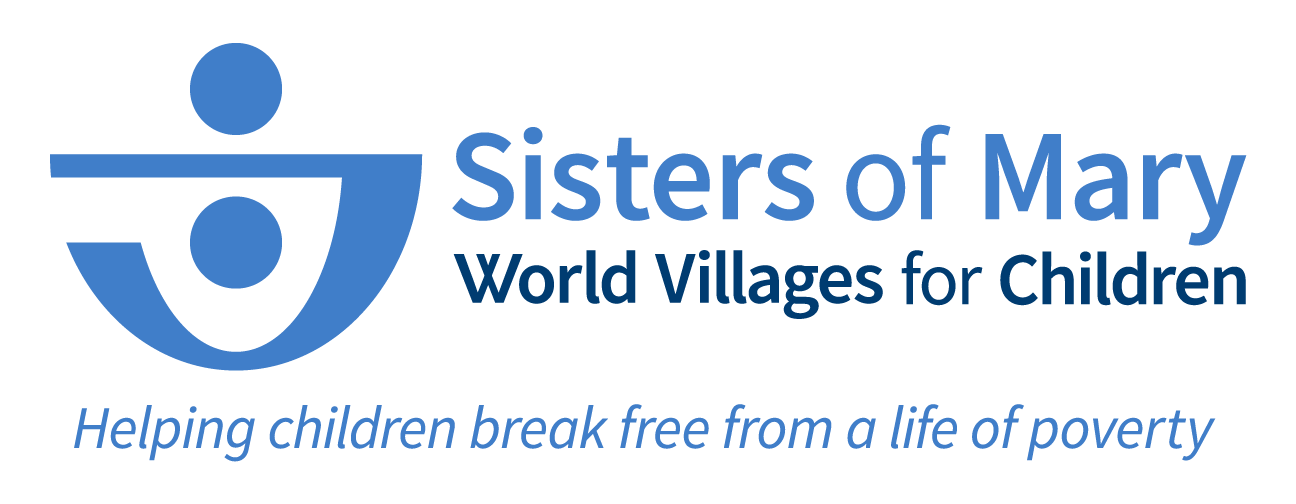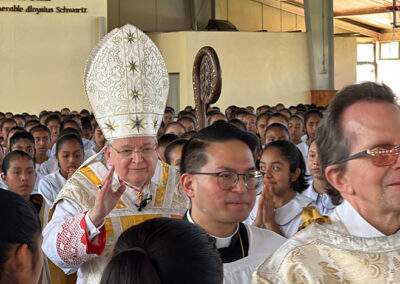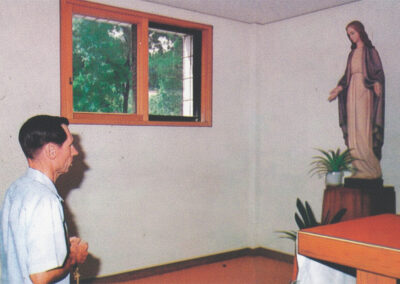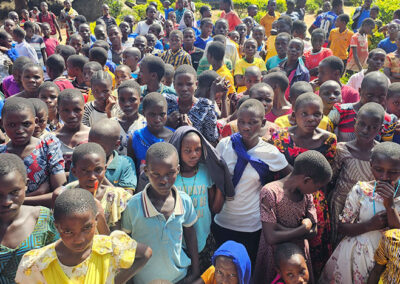With the expanding war, I’ve been thinking about the detonation of bombs into childhoods.
In the deep interior of Mexico last week at Villa de los Niños in Guadalajara, Mexico, I walked paths and found myself falling into new friendships with three American combat veterans. We ate meals and prayed shoulder-to-shoulder, told jokes, and attended Mass together.

Javier, Freedom Alliance
They told me stories around a lunch table where they occasionally had to stop mid-sentence to gather themselves. One raced to free a trapped tank man under heavy artillery fire in Iraq. Eight days later, he pulled a dying soldier from a flipped Humvee under heavy mortar rounds. His heroism earned him a Silver Star. “It means very little to me,” Javier Camacho, a former Army sergeant major, told me. “I just did for those soldiers what I hoped they would do for me.”
Another stocky, muscle-bound sergeant named Enrique quietly shared memories of clench-necked, door-to-door searches for insurgents in Fallujah and Ramadi. He always wondered if the next knock would end his life.
Each soldier had volunteered to enter the hillsides of Guadalajara to share the piecemeal conquering of their wounds, PTSD, nightmares, and fog-of-war “moral injuries.” As the soldiers told their stories, 1,913 saucer-eyed teenage boys in the Boystown community sat like stones. These bullied boys from Guerrero, Veracruz, Oaxaca, Chiapas, Puebla, Durango, and numberless other hardscrabble towns resembled riveted Tiny Tims in the company of the 12-foot tall American Goliaths.
But as the week went on, the shy boys began to open up to the soldiers. One morning, they broke into small groups, where dozens of boys enveloped the soldiers and hesitantly unpacked stories from their own war-torn lives.
And like that, the soldiers felt their eyes well. The script flipped. Suddenly, the soldiers began to see the boys as warrior-Goliaths. The different scales and hierarchy of warriorhood became clearer to them, in a way it never had.

Like a song played in reverse, the soldiers started learning from the boys. The muscle-bound war combatants came to Boystown as rescuing soldiers, having agreed to do their best to coach up boys who’d been beaten down by the violence of poverty and physical and mental abuse. But they began to see Christ on the cross in the boys. In the boys, they saw Golgotha and resurrection – over and over and over. The soldiers saw the boys as human stained-glass windows with souls pouring out rippling, holy light.
“I was expecting to help the boys overcome obstacles, but they helped me far more than anything I gave them,” Camacho said. “So many of these kids have nothing in life – no parents, poverty, abuse – and they walk around with humbleness, joy, and peace. They are proud of their lives. I was expecting to see some beat-up kids who were given lemons. But each has made sweet lemonade.
“These boys are so far ahead of the game. They already have it. They are the future of Mexico. The Sisters of Mary loved them, and they’re on their way.”
The soldiers returned to America with a different idea of warriorhood.

Kevin Wells interviewing Rodrigo, a Boystown Student
A boy named Rodrigo told them he went to bed one night with loving parents and awakened the next morning with Dad hanging from the ceiling. Mom’s throat was slashed. He was an orphan at six before he knew what being an orphan was. Because the family resided in an isolated village in the mountainous state of Guerrero, he and his two younger sisters continued to remain in the blood-soaked home. Alas, weeks later, a distant uncle got the news and came for the children on the tree-choked mountain. Guerrero is a Mexican state bathed in traffickers, murderers, village pimps, drug runners, and gangs.
Rodrigo’s eyes are still cold orbs of dark memory; there seems to be no joy in them.
And the soldiers whispered to one another: The Sisters have work to do with this one.

Kalid, a Boystown Student
Kalid also grew up in a remote lean-to, a lonely land of bamboo shoots and punches to the face. Mom drank alcohol each day and used her lanky son as a release for her anxiousness and fear.
“My mom suffered. So I suffered,” said Kalid, a 17-year-old fifth-year student. “People murdered with machetes. There was drug trafficking. There was human trafficking, and people would vanish. Gangs fought over the water and land. They cut off supplies.”
So Kalid, who exited the birth canal without a father and into a boyhood of nevers, started to fight to survive. Mom hit him so he hit others.
Then the violent 12-year-old boy was admitted into Boystown five years ago. He soon found himself fist-fighting a Boystown classmate on a basketball court. Blood spilled onto the pavement. A nose was broken.
“I got into some fights early on, but I was continually shown love by the Sisters,” he said. “They showed me I was loved by Jesus, and my anger quieted. They told me I have a purpose in this world.”
And the soldiers whispered: The Sisters got to this one. Kalid’s on his way.
The boys kept approaching the American Goliaths. So the soldiers kept crouching down, with blurry eyes, to listen in. They kept hearing a bible full of Lazarus stories.
“There is a joy in Guadalajara that you don’t see elsewhere,” said Tom Kilgannon, the president of the Freedom Alliance, who spearheaded the trip. “And I think I know why. Every minute of every day, these boys are loved and cared for by the Sisters. They are reminded that Jesus loves them despite what they’ve been through. Crucifixes are on every wall. Rosaries are prayed each night. Masses are always offered.”

Tom and Loli, Freedom Alliance
The best part of this little story of real-life warrior-soldiers and warrior-boys is that we haven’t arrived at the point of the ones who, arguably, might be the mightiest of them all.
 The Sisters of Mary.
The Sisters of Mary.
The soldiers fell quiet when someone told them of the sisters’ motto: The way we serve is to wear a constant crown of thorns.
There are 25 crown-wearers in Guadalajara. These women are the tiny and forgotten ones in the background, the blue-collar martyrs who will not stop.
“They are so faithful to the boys,” Kilgannon said. “Because the sisters love our Lord so much, they love the boys so much. They do all they do for God.”
This humble kingdom of resurrection buried in Mexico’s green mountains is where every sufferer is comforted, where nightmares go to die. At Boystown in Guadalajara, battered souls are raised from the dead by mother-sisters who’ve agreed to die to raise them.
The Sisters know this broken world unwittingly screams for young Catholic missionaries. So each day they awaken at 5 a.m. and beg God to help sustain the 19,000 boys and girls they care for to pour out the fullness of Christ’s Truth in a world that will hate them for it. But these little soldiers don’t mind.
“I can tell you that sharing Christ and the Gospel will not be hard for me,” Kalid said. “It will be easy for me to share my faith. … since the moment I saw a soldier come into my village as a child, I knew I wanted to fight for Mexico’s freedom. And I hope I am a soldier in the army this time next year.
“But far more, I will be fighting for Christ in the world. The Sisters showed me how.”
Note: World Villages for Children (WVC) is a non-profit organization that financially supports the Sisters of Mary as they help children break free from a life of poverty and lead them to Christ. WVC provides food, shelter, clothing, medical expenses, Catholic education, and vocational training to more than 20,000 children in Boystowns and Girlstowns in six different countries around the world. To donate to World Villages for Children, please go to worldvillages.org/poverty.





